(L-R) Teedra Moses, Marcelle Araica and Nicole Henry
Photo: John Parra/WireImage
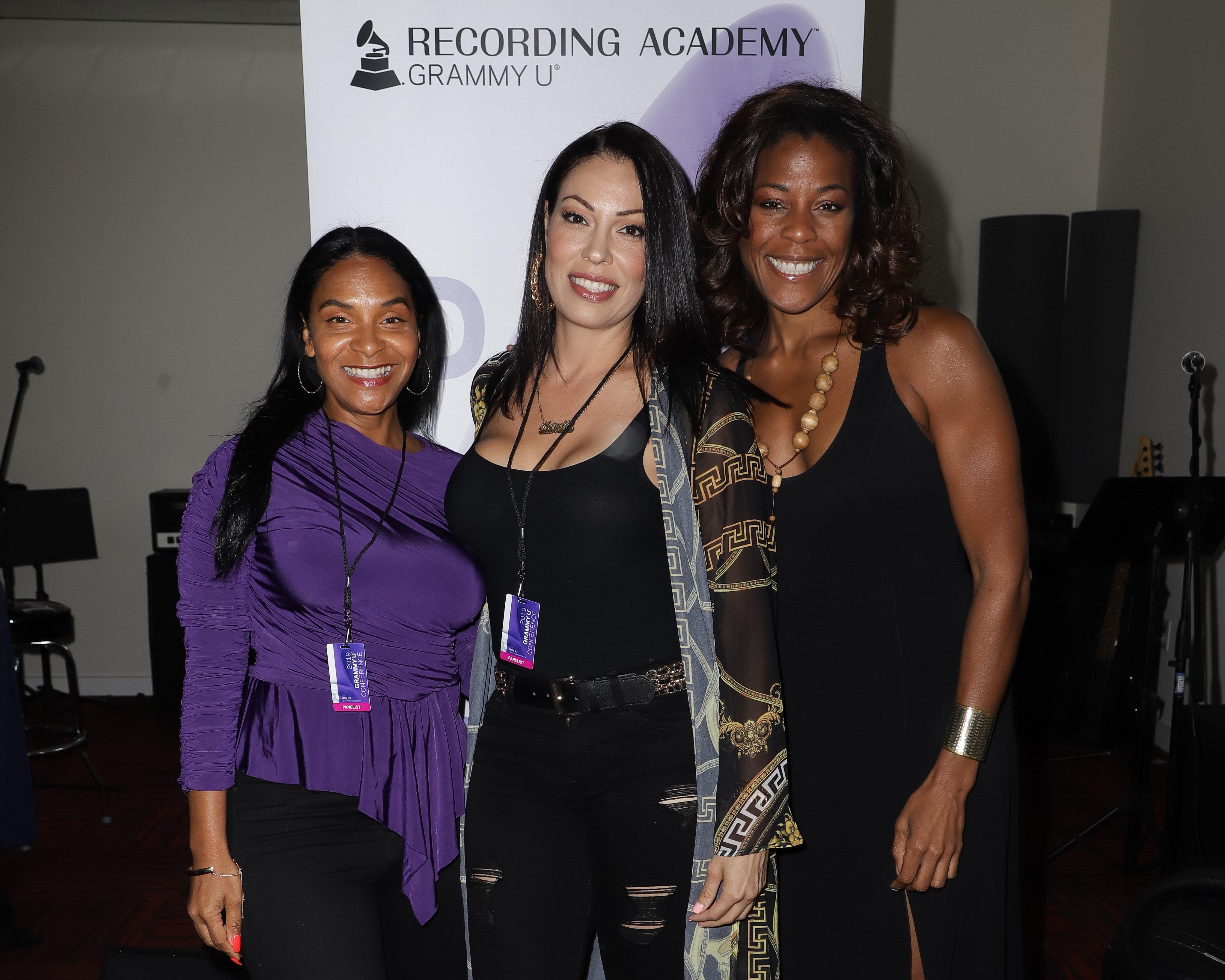
news
Here's How They Did It: 14 Music Industry Lessons Learned At The GRAMMY U Conference
From finding your true creative voice to dealing with deadlines, here are tons of takeaways from the Recording Academy Florida Chapter's day-long GRAMMY U Conference on making it in the music industry
Miami's vibrant arts neighborhood of Wynwood is known for gathering tourists and locals alike. But instead of flocking to the district for its street art and murals, students and industry professionals came together recently in Wynwood for this year's 2019 GRAMMY U Conference hosted by the Recording Academy Florida Chapter.
The panels consisted of local and international acts, each bringing their experience and knowledge of what it takes to create and sustain a career in music.
Although everyone's path is different, technology and social media have created bridges connecting and empowering industry professionals – but there are also challenges and experiences no one can prepare you for. From overcoming doubt and expressing musical ideas to following your true self and dialing in visual branding, here are some of the top takeaways, advice and lessons learned from the various sessions of this year's conference. Take notes!
Seeing the Sound: An Artist’s Guide to Visual Branding
"Listen to your tribe."
Cuci Amador, singer/songwriter of Afrobeta encouraged attendees to keep their ears and minds open. One of the best things about being in the music industry is the culture of collaboration music fosters. A close group of friends, family, or mentors who can give you honest advice on your material can be a powerful creative tool. Keep an open mind to their feedback and ensure that those you let into your tribe have your best interest at heart.
If you don't already have a friend or a tribe, now is a great time to create one. You can leverage social media and Facebook groups to meet other creatives and mentors on your journey. Make sure to create a consistent and effective exchange of energy; no one wants to be the person always asking for favors or advice but never reciprocating.
"The moment you're yourself, everything will happen for you."
Jackie Cruz, artist, activist, actor and songwriter spoke to the fact that there's nothing more special than showcasing who you are to the world. With social media, it's easy to get inspired by others look and sound, but no one else can be you. Even if your social media following starts out small, people gravitate toward authenticity.
"Don't confuse consistency with authenticity, and don't take consistency too far. Authenticity is what makes a powerful brand."
Stephanie Guerrero, creative content director, Universal Music Latin Entertainment, explains that owning your own story is vital when defining your image online and via social platforms. She suggests using the 70/30 rule as your standard, where 70 percent of your social posts should be personal, and 30 percent of your social media posts should be promotional, a formula her team uses when managing some of the industry's biggest artists. They've learned people will invest in people. If your supporters like you as a person first, their support is guaranteed when it comes time buying into your talent and material.
"Don't be ashamed of what triggers you to be creative"-
Music video director & content creator Milcho also weighed in with some creative wisdom. Before you make a smash hit or a viral video, you have to go through the beginning stage and create content that most people will never hear or see – and that's okay. Milcho said this is an essential part of the process, called "the practice." Don't be afraid to create and show your work to peers and mentors; it's necessary to share because it allows you to learn through honest feedback on your work. It's also okay if you decide not to release your "beginners" content. It's about what makes you feel connected to your music and art.
Artist Spotlight: Mau y Ricky
Moderator and Latin GRAMMY nominated artist Manu Manzo sat with the brotherly duo to hear their story and find out what helped them build their careers while keeping themselves together.
<iframe width="620" height="349" src="https://www.youtube.com/embed/PPgZXMYlSXg" frameborder="0" allow="accelerometer; autoplay; encrypted-media; gyroscope; picture-in-picture" allowfullscreen></iframe>
"Surround yourself with people that will bring you back to earth."
In an industry that is known for its flash and indulgence, it's easy to get carried away and become a 'diva,' but it's essential to surround yourself with people you trust and can hold you accountable. Whenever their status gets to their head, Mau y Ricky call each other out and make sure they are treating everyone around them with respect and keeping it humble.
"Take care of yourself."
Although being an artist may seem like it's all play, hard work is what fuels a successful career – and hard work can take its toll. Nights turn into days, and there are flights, performances, videos, deadlines and other responsibilities that have to be met as part of a busy artist's schedule, but no matter how crazy things get, you to have to take time for yourself.
Mau noted a time he skipped sleep for four days straight, and it cost him 20 days out due to illness. Rest days on tour are an essential balance to staying healthy and consistent. The brothers said their family keeps them on track with meals and sleep to ensure they stay in shape for their demanding careers.
"Find a unique way to say what everyone feels."
Mau y Ricky said their real secret to creative expression lies in thinking about how the music they write will connect with people. Before they sit down to write or create, they envision how they want people to identify with what they want to express. The practice has allowed them to think about their audience in a different way and create for their listeners rather than making something and hoping people find it interesting.
"Sometimes it's ok to give up."
When it comes to creating, time is of the essence. Giving up on dead end songs has freed up their time to move on and make better music. For them, there is no point in continuing to work on a project or song that doesn't feel authentic. Cutting their losses can increase their productivity and allow them to keep pursuing the sound they hear in their head.
Up Close & Personal with III Points, Miami's Alternative Music Festival
Three of the festival's finest discussed what it takes to make it in music including David Sinopoli, Founder & Co-Owner of Club Space/Floyd/the Ground; Michelle Granado, Assistant Talent Buyer/Artist Relations & Hospitality Director; Ashley Solage, Festival Producer & Art Coordinator; plus moderator Laura Sutnick, DJ & Founder, Klangbox.fm
"Chaos is special, just be honest, and try to get better."
Sinopoli and his team have experienced significant curveballs like hurricanes during festival season and the major Zika outbreak, but despite these setbacks, they kept pushing. Since then they've learned to embrace the chaos and stay honest with their audience to improve attendees' experience. This honesty helped their audience stay loyal to their brand because people felt they were going through the tough times with them. Maintaining a positive outlook has given the III Points team the ability to move forward fearlessly despite all the hurdles they've endured.
"Support the local music scene."
As a strategy to give more exposure to local artists who have been cutting their teeth in Miami III Points schedules local acts to perform before major headliners take the stage. At the local level, there is still a way to support the creatives in your city. Even if you come from a small town or a city with a growing music scene, there is always opportunities to get involved. You can intern at a music venue, volunteer with an organization, share music on social media or create playlists online. Exposure can come in many different ways, so be creative.
"Stay up to date with your industry."
With the festival business rapidly evolving, there is more pressure now for live events to bring creative and engaging ways for people to experience music. To keep up with the latest concert and festival trends the III Points team travels. They say this practice translates to all different areas of the music industry. Listening to other genres or music in other languages, watching YouTube videos or creating group chats can give you an edge when it comes to developing and diversifying your musical palette.
There's a variety of ways to connect and stay in touch with your industry, such as joining online groups and subscribing to blogs, newsletter and channels in-line with your goals. You can also start your own Instagram account, podcast or social channel to share your industry knowledge and highlight artists that you admire.
<iframe width="620" height="349" src="https://www.youtube.com/embed/7H309XoPqKk" frameborder="0" allow="accelerometer; autoplay; encrypted-media; gyroscope; picture-in-picture" allowfullscreen></iframe>
Art of the Song: Bring Your Musical Ideas From Conception To Completion
Multi-Platinum Mixing Engineer Marcella Araica, and artist/songwriter Teedra Moses sat down with moderator Nicole Henry, an award-winning jazz/soul artist and owner of Banister Records, to delve into the craft of bringing your musical ideas to life.
"Expand and explore once you're more established"
Araica offered this sage advice on how to deal with the urge to try it all. Music and experimentation go hand in hand, but sometimes it's better to explore once you have an established sound so people can recognize and pinpoint your music easier. If you experiment too far too early on, it may be harder to find and keep a loyal audience. People usually flock to a consistent sound, and once they support you, they're more open to exploring and supporting your evolution as an artist.
"Intoxicate your brain with other inspiring things"
Make sure the fun doesn't get sucked out of the work Moses advised, otherwise you'll end up with a sound that feels forced. For some people, it's a relaxing day at the beach, dancing or church, but don't be afraid to find joy and inspiration outside from the music. The energy and excitement you gain in other areas of your life will feed and carry over to your spirit and the music.
"It's better to make a great record than a fast record"
Moses also explained that deadlines don't work for everyone. Identifying what works for you early on will allow you to push yourself or create a more relaxed way of working. It will also help you when communicating with your team or establishing working relationships because everyone will know what to expect. Remember to stay open-minded. What works for you may not work for everyone else, and creativity cannot be rushed or delayed. Balance is key.
Put Your Dreams To Work: 5 Ways To Land Your Ideal Music Job
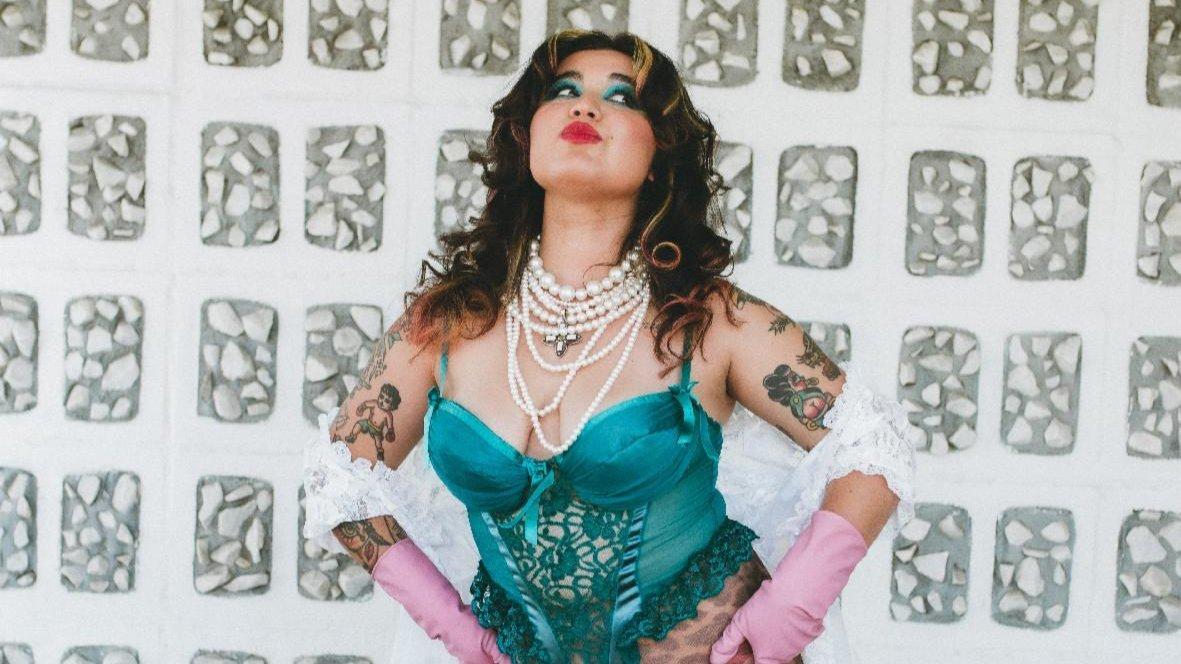
Photo: Ragan Henderson
interview
On New Album 'Big Ideas,' Remi Wolf Delivers Musical Poetry In Motion
Alt-pop favorite Remi Wolf took inventory of her psychological state while on "back-to-back-to-back" tours, and the result is a winning second album: 'Big Ideas.'
How can you write a song, when you have nothing to sing about? One trusty well to return to is life on the road; the musical canon is filled with odes to whizzing highway dividers, beds in strange places and, on occasion, a deteriorating home life.
The buzzy and prolific singer/songwriter Remi Wolf just folded these experiences into Big Ideas — her second full-length album, and one born of perpetual travel, transit and transition. (And, it should be said: her Carmen Sandiego traversals led her to NYC’s 2024 GRAMMY U Conference.)
"Well into my 20s, it was like a second puberty, because essentially, I was reborn as this touring musician," the thoughtful and loquacious indie-popper tells GRAMMY.com, over Zoom from her rehearsal space. (Even then, she's in motion, ducking from room to room to evade clamorous comings and goings.)
She evokes her breakout 2021 debut album: "I'd never toured like that before. My whole entire life felt so new after Juno was released."
This led to a white-hot writing streak. Big Ideas' highlights, like advance singles "Toro" and "Alone in Miami," directly address change and upheaval. Goes the former: "Dancing around and spilling wine/ You look good in my hotel robe." Goes the latter: "Met up with Maine, bought cocaine/ Clothes in the lobby waiting for me."
"There's no frills in that s—," Wolf says. "They're quite literally about real life." Read on for a full interview with Wolf about Big Ideas — a locus of that life, in all its nuances and dimensions.
This interview has been edited for clarity.
I love how funky and rhythmic 'Big Ideas' is. Which rhythms from the musical canon got you going? Are you a Purdie head? A Dan head?
Oh, all of the above. I love a Purdie shuffle. The Purdie shuffle is a pretty legendary groove. I'm a huge fan of Steely Dan. I went to music college; I feel like as a music school student, you kind of have to love Steely Dan. Well, some of the kids choose to hate them, but I chose to love them.
But yeah, I love a funky groove, a funky beat. I also like simple s—, but we love syncopation in this household.
What'd you grow up listening to on that front?
Honestly, not much. I feel like as a young kid, I would just listen to what my parents were listening to, and my dad listened to a lot of '80s classic rock, and my mom really liked Prince.
And then, also, my first album I ever owned was Speak Now by Lindsay Lohan, which is a completely different direction, and I was about eight when I got that album.
I didn't know she made music.
She had a music career. It was brief, but it was mighty, truly. She had all the best songwriters in the industry at the time working on this album. So honestly, even though it wasn't the pinnacle of musicianship, the writing was really good. Great songs.
I just flashed back to Hilary Duff jewel cases in grade school.
Oh, yeah, that's another classic, but I was a little bit more alternative than that. Lindsay Lohan was kind of on more of a pop-punk, like emo front-facing type of songwriting and energy. A little bit more like Alanis Morissette vibes.
If I ever encounter a Lohan song in the wild, I'll remember your recommendation.
When I was a high schooler, that's kind of when I started really listening to a bunch of staff that wasn't playing in my house. And that's when I got into Stevie Wonder and the Beatles and Cake.
I ride for Cake. Great band.
I ride for Cake, too. Honestly, they're one of my favorite bands of all time. I don't know, I feel super similar to them sometimes. Their lyrics are so wacky and sad, kind of — and bizarre, but they're so funky, and the songs are just great, but they're weird.
Take the readers through the span of time between your first album, 'Juno,' up to this sophomore album. What seed was planted?
I released Juno at the end of 2021, and I guess the seed that was birthed after that was that I've essentially been on tour ever since.
This new album, Big Ideas, is kind of the product of: I would go out on tour and come home for a week at a time, because I was on back-to-back-to-back tours. I went on 10 tours in one year; I was only home for about six weeks of all of 2022. And then, going into 2023, I kept touring, and kept doing the same thing.
Watch: GRAMMY Museum Spotlight: Remi Wolf
This album is a collection of all these moments and memories, and getting really focused, short amounts of time with me getting home and kind of exploding songwriting-wise — then, going back on tour and building up s— to talk about, and then exploding once again.
There were about five concentrated week-and-a-half to two-week-long periods of writing that became this album.
Do you get a charge out of touring? I couldn't imagine doing it again.
Yeah. I think that there is an adrenaline that I like about it. I like traveling. I like seeing different cities, even if it's for a couple hours. I really like that.
I like the communal aspect of it. I like getting really close to people and having a routine, to be honest. It's the most routine time of my life. Other than that, when I'm home, I'm just all over the place and doing a bunch of s—, which also has its perks.
But I don't know, there's something about waking up and doing the same thing every day that kind of is nice for me. And it's cool to be able to just focus on one thing, getting to the next city and playing the show and making people happy.
What about your life disappearing temporarily? Leaving a partner, your houseplants…
No, that's really difficult. I luckily don't have a partner right now, but I think that tour is really capable of ruining a lot of relationships, unless you've got a really strong one where they understand the lifestyle and everything. But I've had many houseplants die. It's actually really sad.
Your life just kind of is on pause. It's like a time machine, or a time capsule. Especially living in L.A. where the weather's the same every single day, you come home, and it's exactly the same as when you left the city.
Once the emotional and conceptual pieces were on the floor, how did you assemble 'Big Ideas?'
There are so many iterations of what it could have been. Because like I said, I had five two-week long sections of writing a f— ton of songs. And I'm not kidding, I wrote full albums within those weeks. I would be hunkered.
I had one week in L.A. where it was five days, and we wrote 10 songs. And then I had another week in L.A. We wrote seven songs. And I had another week in New York, and we wrote nine songs. And then another week in New York, and we wrote 12 songs. And then another week finally back in L.A., and we wrote four songs that time.
But essentially, I was kind of just doing what felt right. Until I felt like we had an entire album that was cohesive but expansive in its palette, I kept writing. And then finally, at a certain point, I was like, OK, I feel like we have the record.
But there were moments where I was like, oh, I just wrote an album. I don't have to do anything else. And then a month would go by and I'd be like, I need to do more.
In terms of choosing the songs, I think I was drawn to the songs that felt the most real to me — that continued to feel the most exciting and real to me.
Define "real" in this context.
That is a very difficult question to answer, and I think it is such a gut thing. It's beyond language. I don't know how to describe that. I don't know. If I feel invested. There are certain songs that you write and you like them, but you don't have that same feeling of investment in them.
Does this really need to be heard? Does anybody need this?
Yeah. Or: Do I need this? Honestly, it's so inexplicable.
Do you ever try to work the songwriting muscle of making something specific, universal? Is that part of your calculus?
Typically, it's not, but there's one song that I tried to do it on very intentionally: "Soup."
[I had] the intention of making it a song that was built for an arena in terms of the sonics and the expansiveness of the drums and the four-on-the-floor. In my head, I was like, OK, I want this song to play, and then you see the arena with the people pumping their fists and feet.
I think I'd recently seen Coldplay at Wembley Stadium, and I was like, Holy s—, this is so wild. Their stuff is so arena, stadium-bound. I was inspired by essentially the four-on-the-floor feel — hearing the reverb in the rafters of an arena like that.
Going into writing that song, I was like, this is the song where it would make sense for me to be blunt and universal with my lyrics. And I think it was a cool experiment and honestly quite vulnerable for me, because I think sometimes I shy away from that type of lyric writing, whether it be out of just wanting to be a little bit more artsy.
Sometimes I think it's fear-based, in the sense of: I want to hide, I want to be able to be the only one to really know what I'm talking about sometimes. And I think with "Soup," I kind of just let it fly and let that universality shine through a little bit more.
You don't need to know what songs mean all the time. You mentioned the Beatles: John sang, "Yellow matter custard, dripping from a dead dog's eye."
Yeah. It's syllables, and imagery. This s— can be anything you want to be, and I always try to remember that.
What's coming up in your musical life?
I'm going on tour in the fall; today is our first day of rehearsals. We're starting to put together a big show. More travel, more motion. I never stop moving, essentially. Hopefully I'll be writing more soon.
Explore More Alternative & Indie Music
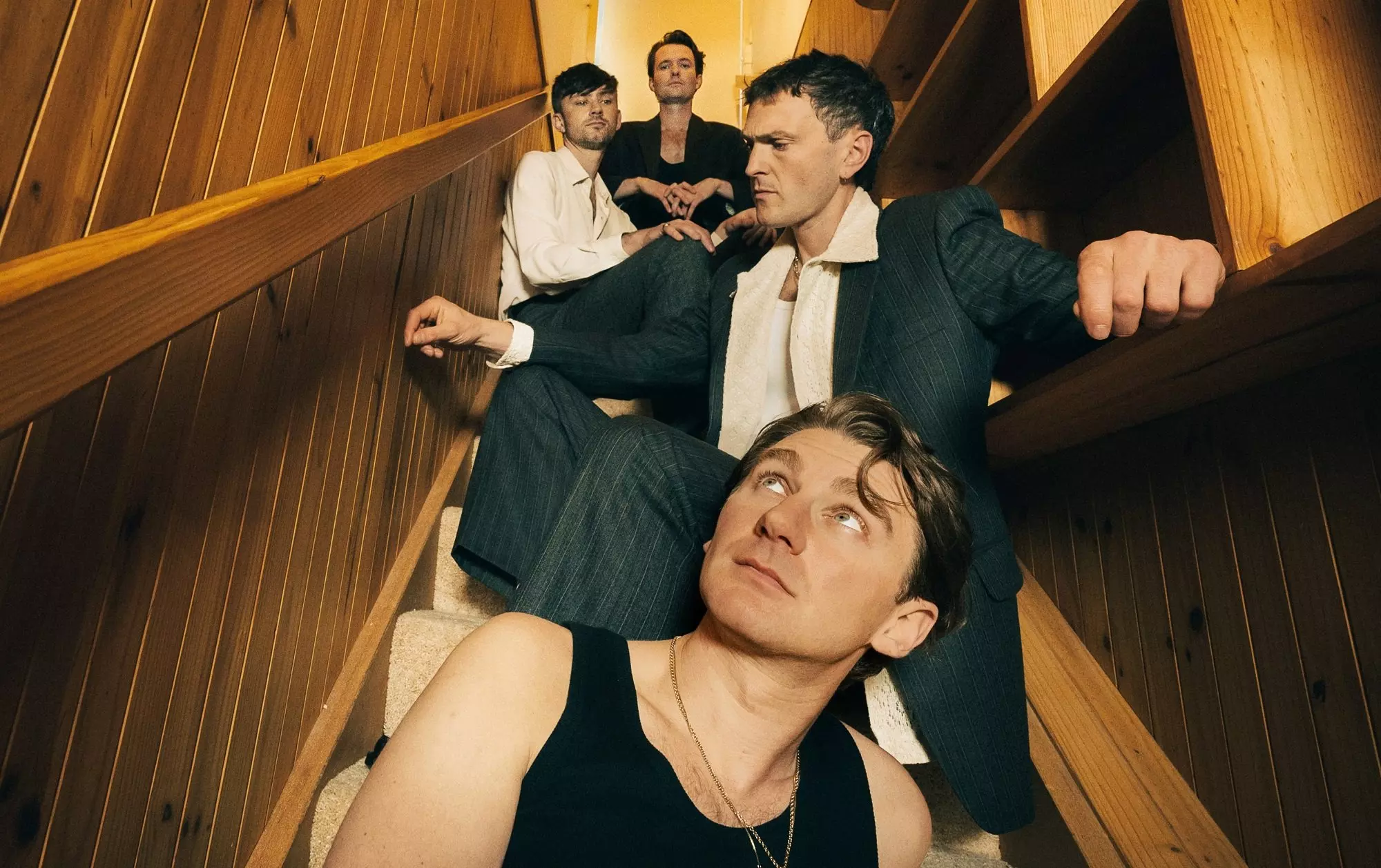
Ladies And Gentlemen, Glass Animals Are Floating In Space

Daniel Nunnelee's "Why Don’t You Just Come Over"
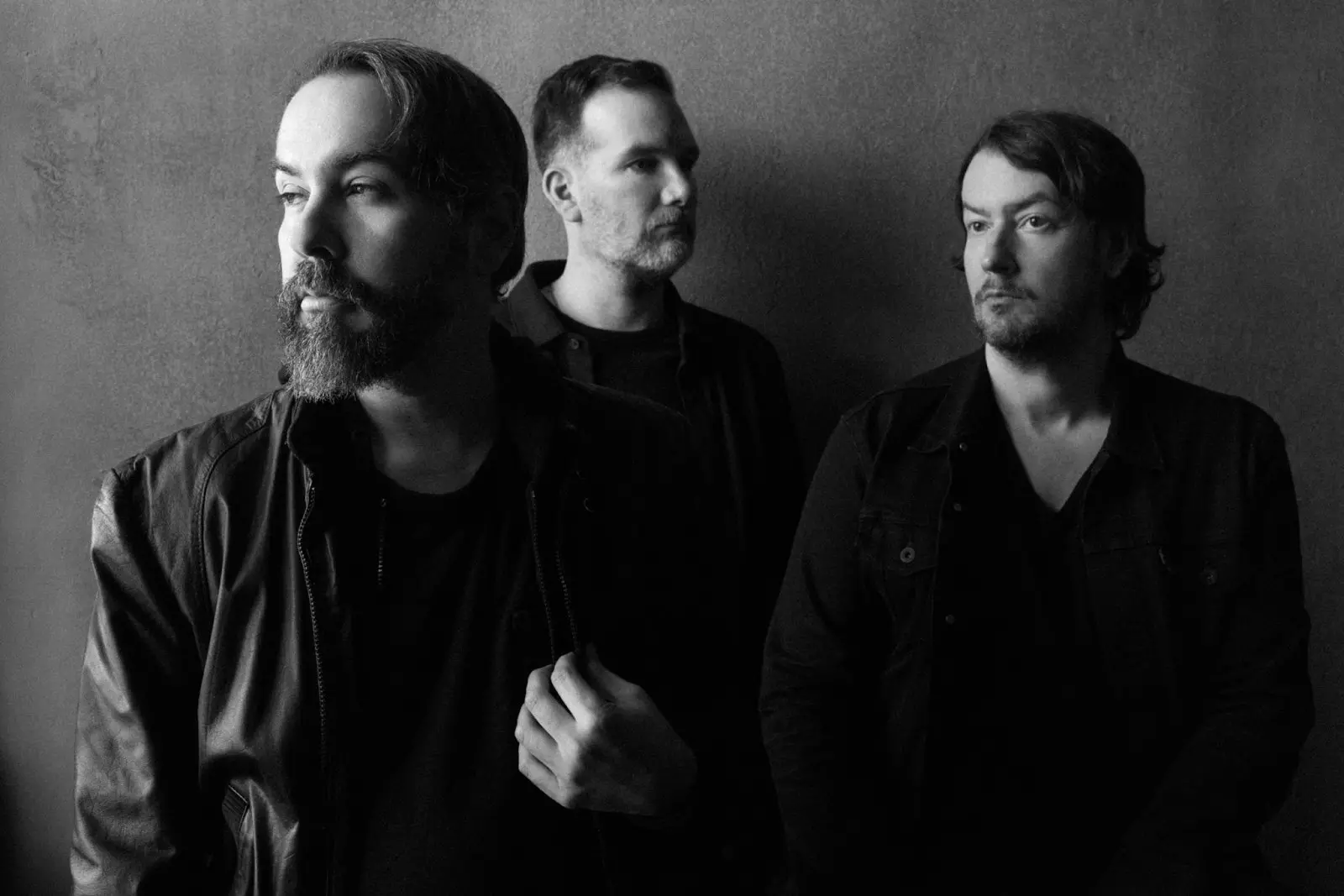
X's Mark The Spot: How Cigarettes After Sex Turn Difficult Memories Into Dreamy Nostalgia
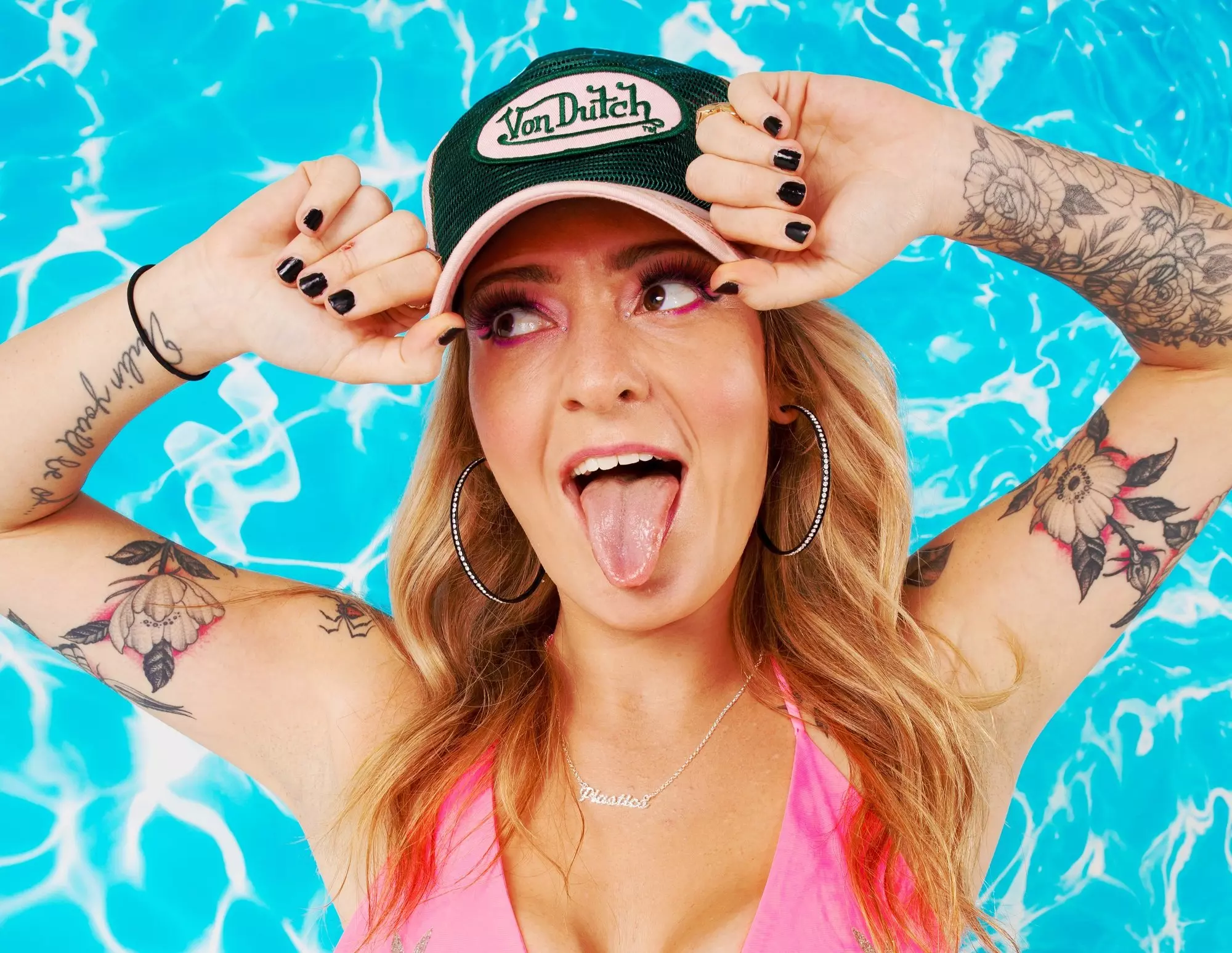
Meet Scene Queen, The "Chaotic Mess" Cleaning Up The Alternative Scene

Where St. Vincent Keeps Her GRAMMY Awards
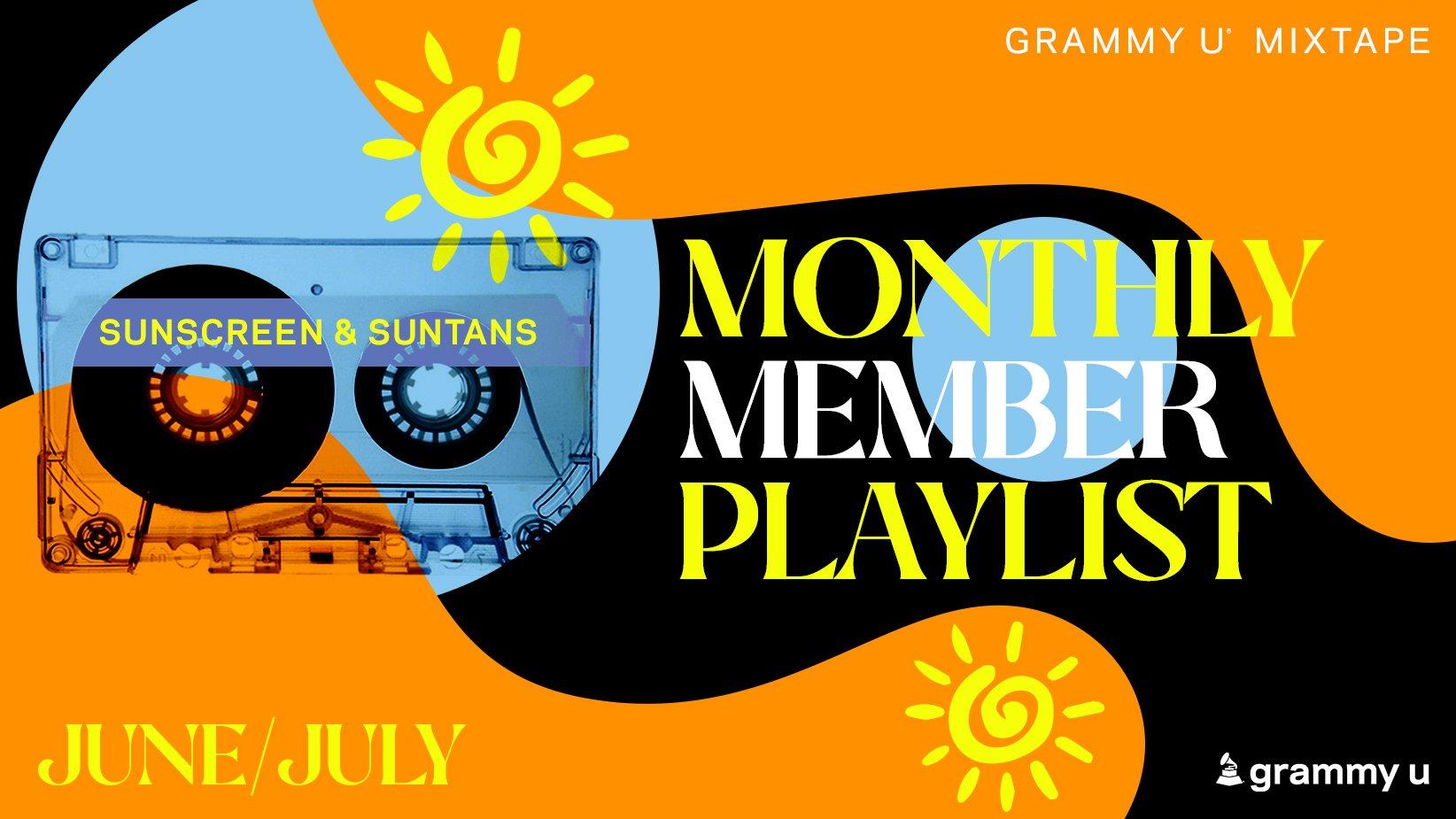
news
Press Play On GRAMMY U Mixtape: Sunscreen & Suntans Monthly Member Playlist
The GRAMMY U Mixtape is a monthly, genre-spanning playlist to quench your thirst for new tunes, all from our talented members. This summer playlist is a vibrant mix of bubblegum pop and soulful tunes that will have you bopping as you soak up the sun.
Did you know that among all GRAMMY U members, songwriting and performance are some of the most sought after fields of study? This playlist dedicates a space to hear what these members are creating today!
The GRAMMY U Mixtape, now available for your listening pleasure, highlights the creations and fresh ideas that members are bringing to this industry directly on the Recording Academy's Spotify, Apple Music, and Amazon Music pages. Our goal is to celebrate GRAMMY U members, as well as the time and effort they put into making original music — from the songwriting process to the final production of the track.
Each month, we accept submissions and feature 15 to 25 songs that match each month’s theme. This summer playlist is vibrant mix of bubblegum pop and soulful tunes that will have you bopping and singing as you soak up the sun. So, what’s stopping you? Press play on GRAMMY U’s Mixtape and listen now on Spotify, Apple Music and Amazon Music.
Want to be featured on the next playlist? Submit your songs today! We are currently accepting submissions for songs of all genres for consideration for our next playlist. Whether you write pop, rock, hip-hop, jazz, or classical, we want to hear from you. Music must be written and/or produced by the member (an original song) and you must be able to submit a Spotify, Apple Music and/or Amazon Music link to the song. Artists must be a GRAMMY U member to submit.
About GRAMMY U:
GRAMMY U is a program that connects aspiring professionals and creatives ages 18-29 with the music industry's brightest and most talented minds. We provide a community for emerging professionals and creatives in addition to various opportunities and tools necessary to start a career in music. Throughout the program year, events and initiatives touch on all facets of the industry, including business, technology, and the creative process.
As part of the Recording Academy's mission to ensure the recorded arts remain a thriving part of our shared cultural heritage, GRAMMY U establishes the necessary foundation for music’s next generation to flourish.
Not a member, but want to submit to our playlist? Apply for GRAMMY U Membership here.
Former GRAMMY U Reps Heather Howard, Sophie Griffiths and Samantha Kopec contributed to this article.
15 Must-Hear Albums In May 2024: Dua Lipa, Billie Eilish, Sia, Zayn & More
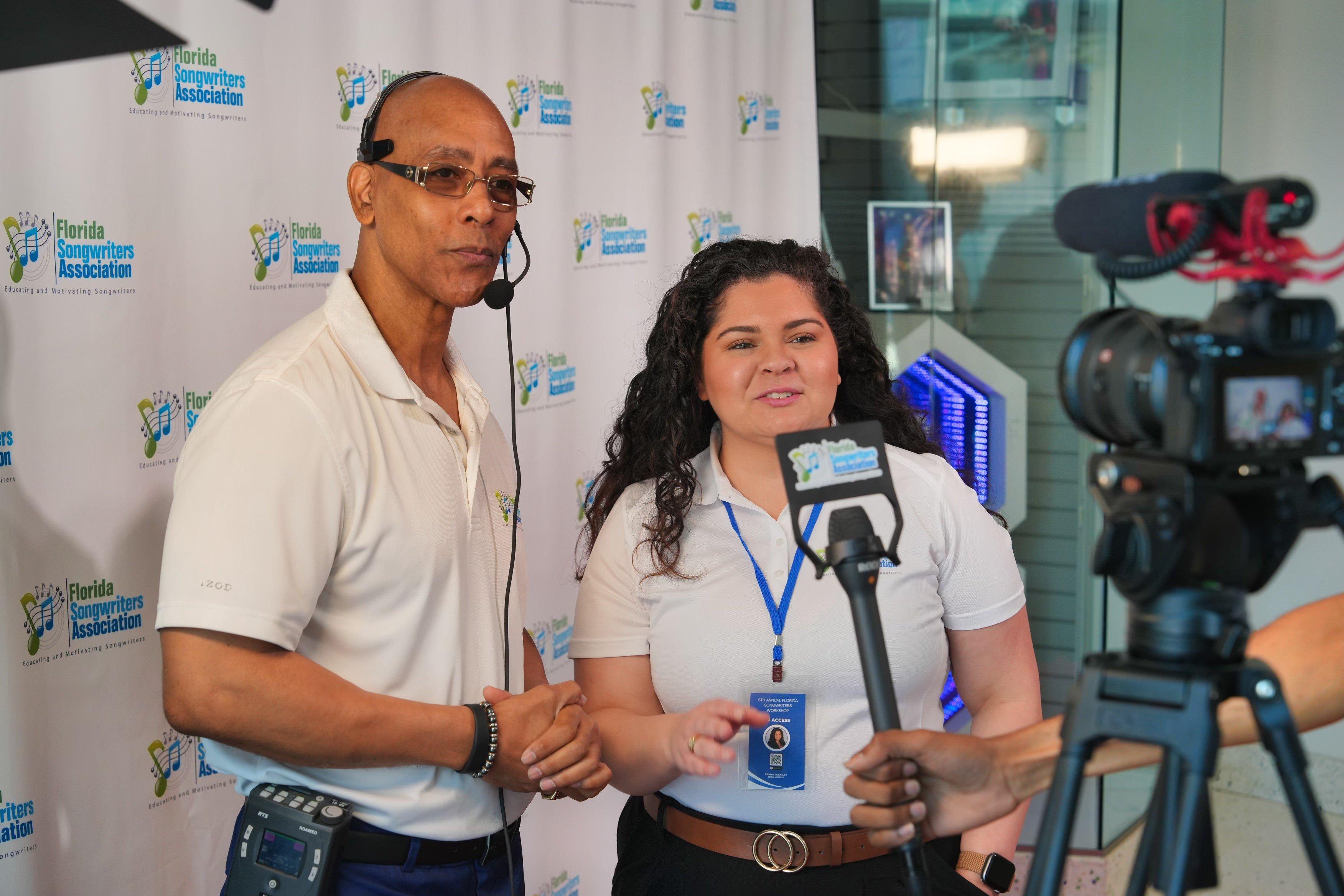
Photo courtesy of Steve Lane and Zayna JeBailey
interview
6 Standout Stories From The 2023-24 GRAMMY U Mentorship Program
The GRAMMY U mentorship program pairs members and experienced music industry personnel. Read on for stories from six successful mentors and mentees from the 2023-24 program year.
With the newly expanded eligibility for GRAMMY U membership, the GRAMMY U mentorship program has also shifted significantly this year. For the very first time, the mentorship program timeline lasted for an entire year, rather than being split into two semesters. The longer timeframe allowed the mentorship pairs to meet more frequently, take on bigger projects, and develop deeper connections.
Through the program, GRAMMY U members from around the world receive one-on-one guidance from seasoned music industry professionals. Mentors and mentees have the flexibility to select their specific track within the music business, including performance, songwriting/composing, marketing, or the general music industry. Pairs are aligned as closely as possible, and match mentees with mentors in roles that reflect their interests.
With over 600 pairings across the 12 Recording Academy Chapters, hundreds of members had the chance to work on amazing projects or participate in once-in-a-lifetime opportunities, all thanks to their mentors. Read on to hear about six outstanding pairs from the 2023-24 GRAMMY U Mentorship Program.
Andre Gibson | Mentor | Chicago Chapter
Lylajean Bariso | Mentee | Chicago Chapter
Andre Gibson and Lylajean Bariso were paired to focus on songwriting and vocal performance. Gibson is currently the President and Owner of Chiat Records, while Bariso majors in creative writing at Northwestern University.
During this year’s mentorship program, Bariso had the unique opportunity to advance her music career. Under Gibson’s guidance, she participated in her first professional studio recording session and registered with a performing rights organization, enabling her to copyright her music.
Although Bariso is not enrolled in her school’s music program, music is one of her most passionate hobbies. After participating in this year's mentorship program with Gibson, her perspective has shifted.
"I've felt discouraged from pursuing music as a full-time career for most of my life, even though it's definitely a dream that's out there and high up for me," Bariso says. "However, I really appreciated that Andre took me seriously as a musical artist and supported the idea of me doing this as a career and following the same practices as professionals in the industry."
Steve Lane | Mentor | Florida Chapter
Zayna JeBailey | Mentee | Florida Chapter
Zayna JeBailey, a music business and entertainment industries graduate from the University of Miami, was paired with Steve Lane, Executive Director of the Florida Songwriters Association. At the start of the program, JeBailey hoped to gain a deeper understanding about the industry through hands-on experience; with Lane as a mentor, she accomplished that goal.
Over the past few months, JeBailey has worked on the Florida Songwriters Association podcast, assisting with everything from setting up equipment to filming. Additionally, she helped organize the 5th Annual Florida Songwriters Association Workshop, hosted at Full Sail University. The workshop offered networking opportunities and featured panels with multiple industry professionals.
"Graduating with my bachelor's back in December left me feeling a bit lost about where to go next," says JeBailey, who will continue to work for the Florida Songwriters Association on projects for youth and young adults in Central Florida. She'll also continue to work on the organization's podcast and next year's workshop. "My mentor's advice and guidance this year, and the connections I have made while working with him, have provided a space for me to discover my next endeavors."
Rachel Levy | Mentor | Los Angeles Chapter
Joshya Gupta | Mentee | Los Angeles Chapter
Joshya Gupta, a music industry major at the University of California, Los Angeles, was paired with Rachel Levy, the Executive Vice President of Film Music at Universal Pictures. Acknowledging the significant impact mentors have on shaping young minds, Levy reflects on how mentorship shaped her own early experiences in the industry.
"I was also lucky enough to have a few mentors when I started out in this business that really had an effect on me," Levy says. “So, it’s been great to be able to do that regularly for the college students I have been connected with."
During the mentorship program, Gupta visited Levy's office at NBCUniversal and shadowed her during her day-to-day routines. During this experience, Gupta gained valuable insights into the world of film music and the various responsibilities associated with the role. Through Levy's guidance, Gupta successfully secured her dream internship at NBCUniversal.
"My goal is to work in film music and my mentor has been instrumental in propelling me towards that aspiration," says Gupta. "Beyond mentorship, she has facilitated opportunities for me to connect with her colleagues, broadening my network and deepening my understanding of the field."
Corynne Burrows | Mentor | Los Angeles Chapter
Jaida Brown | Mentee | Los Angeles Chapter
Hoping to sharpen her skills as a confident content creator, Jaida Brown, a music business student at The Los Angeles Film School, was paired with Corynne Burrows, the founder & CEO of Midas Touch Management.
"I have learned how important it is to surround yourself with people who have a constant desire to grow and to have fresh perspectives from others to be able to help you see all sides of situations," Burrows says.
During the mentorship program, Burrows and Brown focused on taking Brown’s career as a performing artist to the next level. Creating her press kit and logo were among the projects the pair tackled throughout the year, ultimately transforming Brown’s brand as an artist.
Ben Raznick | Mentor | San Francisco Chapter
Jack Bunch | Mentee | San Francisco Chapter
Over in the San Francisco Chapter, Jack Bunch, a rising sophomore at the University of California, Berkeley, Bunch was matched with Ben Raznick, a Governor for the San Francisco Chapter Board of the Recording Academy. With the help of Raznick, Bunch was able to realize that his aspirations within the industry are far more attainable than he originally believed.
"Ben helped me realize the realities I look up to aren’t so far away. I listen to dozens of self-produced, prodigious, and seemingly thriving musicians, and I’ve felt far removed from them in the past," Bunch reflects. "Now that I’ve begun taking the time to develop skills, set goals, and take tangible steps, I know I can become the artist I want to be."
Raznick also gleaned insight from his mentee during the program. Upon listening to Bunch’s EP, Raznick learned about music tools that he had "never heard of before," which opened his eyes to some of the latest trends and techniques within the fast-paced industry.
"I felt inspired by Jack’s engagement in our meetings," says Raznick. "It was rewarding to spend time with a young artist that reminded me of myself when I began exploring music as a career."
Jake Roggenbuck | Mentor | Nashville Chapter
Anisa Utilla | Mentee | Nashville Chapter
Anisa Utilla, a human and organizational development major at Vanderbilt University, joined the GRAMMY U mentorship program to gain hands-on insight into the music business, which her formal education lacked. She was paired with Jake Roggenbuck, the Senior Manager of Production at Universal Music Group in Nashville.
"Music acts as a universal language, bridging people together. I knew I wanted to be a part of that with more of a business lens," says Utilla. "I have a dream to become a record label executive, but through my classes and internet research, it was hard to understand what the day-to-day work in a label is actually like. Jake showed me that. Through his mentorship, I learned things I couldn't learn in a classroom setting."
Roggenbuck has been actively involved in the GRAMMY U Mentorship program since 2022. He notes that serving as a mentor is a reciprocal experience, as he gains valuable knowledge from his mentees as well.
"I have learned so many lessons from my mentees and can honestly say I get as much out of the program as I give," says Roggenbuck. The biggest takeaway for me is the enthusiasm and passion that my mentees have. It brings me back to a time when I dreamt of working in the music industry and is a reminder of how lucky I am to have a career I’m passionate about."
The GRAMMY U mentorship program allows members to gain invaluable guidance from an experienced music industry professional from multiple tracks within the industry. Results from the program include expanded networks, newfound industry advice, career opportunities, and more. If you are interested in becoming a mentee or mentor for the 2024-25 GRAMMY U mentorship program, be sure to keep an eye out for applications opening in Fall 2024.

Photo: Sarah Morris/Getty Images for The Recording Academy
news
Tori Kelly Gets “Unwrapped” For 'TORI' At GRAMMY U Event Showcasing Production & Recording Techniques From Her New Album
The singer stepped out for GRAMMY U's first "Unwrapped" event to give fans a look deep inside her new record, TORI. Joined by producer and collaborator Tenroc, the pair walked guests through the making of several tracks including "missin u" and "oceans."
GRAMMY U members got a special treat from Tori Kelly when the singer (and Sing-er) took the stage for the first ever GRAMMY U "Unwrapped" event on May 15. Held at The Novo in downtown Los Angeles, the event brought together fans, music industry professionals, and students for a night that dove deep into the creative process behind Kelly’s brand new record, TORI. Amazon Music and Mastercard were participating sponsors for this event.
Joined on stage by producer and collaborator Tenroc, Kelly took fans through a journey of several tracks from her new record, from inception to completion. Kelly discussed each track, aided by a video presentation and using stems to highlight special production techniques, musical intricacies, and cool little Easter eggs. The showcase was followed by a round of live questions from the audience, where Kelly dished about everything from her voiceover work to her pre-studio rituals, before grabbing a guitar and performing two new tracks: "High Water" and "Oceans."
Here’s a glimpse into all the songs Kelly and Tenroc featured, from "Missin' U" to "Spruce."
"thing u do”
When it came time to make Tori, Kelly told the audience that she wanted to focus on "songs that make [you] wanna dance," and "songs that [anyone] can belt out in the car." Mainly collaborating just with Tenroc, Bellion, Clyde Lawrence, and Jordan Cohen, Kelly put together a record that's strongly influenced by late '90s and early '00s pop, with references to chirping Sidekick phones and plenty of nostalgic vocal effects.
"missin u" in particular is interesting, not just because it was inspired by Craig David and the U.K. Garage sound — with Kelly taking special care to pronounce "garage" in true British fashion at the live event — but also because it was released in both its original form and as an R&B edit. The latter version is the one Kelly and Tenroc highlighted at the event, going through Kelly's vocal tracks, and really digging in on the remix's bridge, which Kelly wrote just for that track and recorded in her home studio.
Getting to see Tenroc's Logic Pro work on the big screen seemed to mesmerize everyone in attendance, with most marveling at the ease he seemed to have flicking through the dozens of stems, layers, and plug-ins.
"missin u"
When it came time to make TORI, Kelly told the audience that she wanted to focus on "songs that make [you] wanna dance," and "songs that [anyone] can belt out in the car." Mainly collaborating just with Tenroc, Bellion, Clyde Lawrence, and Jordan Cohen, Kelly put together a record that's strongly influenced by late '90s and early '00s pop, with references to chirping Sidekick phones and plenty of nostalgic vocal effects.
In particular, "missin u" is interesting, not just because it was inspired by Craig David and the U.K. Garage sound — with Kelly taking special care to pronounce "garage" in true British fashion at the live event — but also because it was released in both its original form and as an R&B edit. The latter version is the one Kelly and Tenroc highlighted at the event, going through Kelly's vocal tracks, and really digging in on the remix's bridge, which Kelly wrote just for that track and recorded in her home studio.
Getting to see Tenroc's Logic Pro work on the big screen seemed to mesmerize everyone in attendance, with most marveling at the ease he seemed to have flicking through the dozens of stems, layers, and plug-ins.
"shelter"
Talking about "shelter," Kelly described a sort of shorthand she'd developed with Tenroc, after working closely together over the past few years. She said they're at the point where they can communicate with "sounds" and "telepathy," a benefit she attributes to not switching producers throughout the making of her record.
Tenroc and Kelly used "shelter" to talk about the comping process, or the act of combining the best parts of different takes into a single track. Kelly said she typically does about five takes of a vocal track, all in different personas: one normal, one shyer, one wild, one with a lot of vocal runs, and one that's sort of a wild card. She can keep each take separate in her mind that way, remembering how she recorded a vowel slightly better in one take or gave a line a little grittier vocal texture in another. It's not something everyone can do, though, and Tenroc said it's truly amazing to witness in person — a fact the live audience could attest to.
For Kelly, a lot of making TORI, was about exploring different tones and textures of her voice, she said. She'd sometimes start by doing an impression of a singer like Rihanna and Willow in one run, and then blend the inspired version with her own, stretching herself vocally. She demonstrated that kind of thing live at the show, doing off-the-cuff runs of bits of "Shelter" to talk about how they changed the way the word "plate" in the chorus.
Tenroc also showed off how he used the Little Alterboy plug-in to alter Kelly's voice, turning the rap in "shelter," as well as the "you, you, you, you, you" bit into what sounds like a deep masculine voice, even though those lines were originally laid down by Kelly herself.
"spruce"
When "spruce" was first being envisioned by Kelly and co-writer Casey Smith, it was a song called "truce" about making up with your loved one before going out on the town. Kelly had been wanting to make a "getting ready, girly song," though, and Bellion came into the studio one day with the idea of merging the two ideas in what became "spruce."
Written over a loop made by Tenroc, "spruce" — featuring Kim Chaewon of K-Pop group LE SSERAFIM — is emblematic, Kelly said, of her effort to let go, change, and try new things in the studio. The production was inspired by Jai Paul and uses sidechain compression, which is when the level of one instrument or sound triggers a compressor to control the level of another sound. The crowd clearly seemed taken with the sound when Tenroc played examples of how it was used in the track, which he said he made in part with the Serum plugin. Kelly said the result feels fully "3-D," like you're "inside" the track rather than just listening along.
"same girl"
The last — and most personal —song on the record, "same girl," was mostly written by Kelly while she was on a plane. She wanted something that felt like it could close the record, and she recorded it live with Tenroc in her studio, where he also played piano.
Kelly said the song was inspired by her love of various music styles and genres. She explained, "Coming up as an artist, I always felt a little insecure about trying to stay in one lane and be in one box. I love so many different genres. I'm inspired by so many different things." She continued, "And so finding my sound I always thought that was a bad thing... But I'm grateful for all these different genres I've been able to dabble in. This song was me being overwhelmed by people's opinions and letting it get to me a little bit while thinking of my career as a whole."
Kelly said that while she worried when she was writing that the lyrics would be too personal and too specific, she's had great feedback about the track, something that reminds her that, "Anytime you write about your own experience, someone else out there is going to be able to relate to it."
5 Takeaways From The 2024 GRAMMY U Conference In New York City
